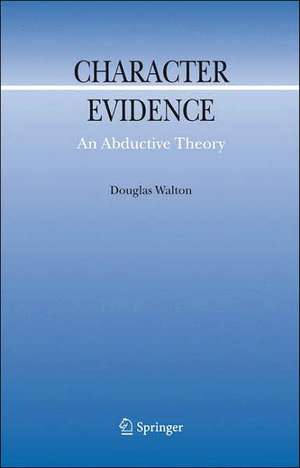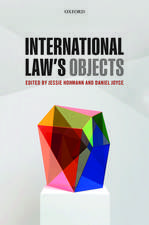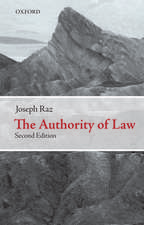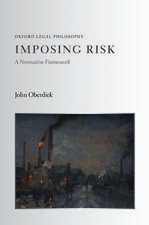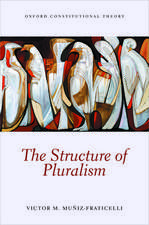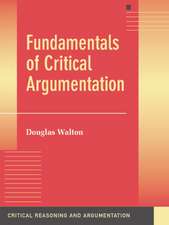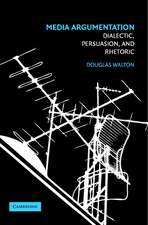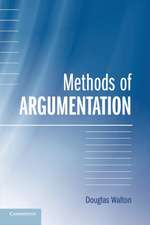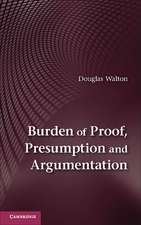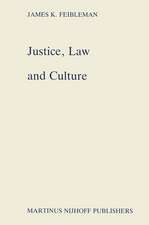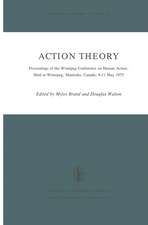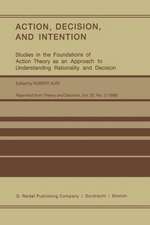Character Evidence: An Abductive Theory: Argumentation Library, cartea 11
Autor Douglas Waltonen Limba Engleză Hardback – 23 noi 2006
| Toate formatele și edițiile | Preț | Express |
|---|---|---|
| Paperback (1) | 638.43 lei 43-57 zile | |
| SPRINGER NETHERLANDS – 30 noi 2010 | 638.43 lei 43-57 zile | |
| Hardback (1) | 644.63 lei 43-57 zile | |
| SPRINGER NETHERLANDS – 23 noi 2006 | 644.63 lei 43-57 zile |
Din seria Argumentation Library
- 15%
 Preț: 644.30 lei
Preț: 644.30 lei - 18%
 Preț: 894.03 lei
Preț: 894.03 lei - 18%
 Preț: 1393.40 lei
Preț: 1393.40 lei - 15%
 Preț: 644.30 lei
Preț: 644.30 lei - 15%
 Preț: 640.06 lei
Preț: 640.06 lei - 18%
 Preț: 1224.36 lei
Preț: 1224.36 lei - 15%
 Preț: 641.03 lei
Preț: 641.03 lei - 15%
 Preț: 637.78 lei
Preț: 637.78 lei - 15%
 Preț: 636.80 lei
Preț: 636.80 lei - 15%
 Preț: 637.28 lei
Preț: 637.28 lei - 15%
 Preț: 636.30 lei
Preț: 636.30 lei - 15%
 Preț: 643.99 lei
Preț: 643.99 lei - 15%
 Preț: 637.13 lei
Preț: 637.13 lei - 18%
 Preț: 948.47 lei
Preț: 948.47 lei - 15%
 Preț: 643.34 lei
Preț: 643.34 lei -
 Preț: 390.63 lei
Preț: 390.63 lei -
 Preț: 494.70 lei
Preț: 494.70 lei - 20%
 Preț: 572.40 lei
Preț: 572.40 lei -
 Preț: 391.02 lei
Preț: 391.02 lei - 15%
 Preț: 678.35 lei
Preț: 678.35 lei - 15%
 Preț: 647.27 lei
Preț: 647.27 lei - 24%
 Preț: 710.70 lei
Preț: 710.70 lei - 15%
 Preț: 637.46 lei
Preț: 637.46 lei - 24%
 Preț: 829.94 lei
Preț: 829.94 lei - 15%
 Preț: 703.20 lei
Preț: 703.20 lei - 19%
 Preț: 426.51 lei
Preț: 426.51 lei - 18%
 Preț: 735.53 lei
Preț: 735.53 lei
Preț: 644.63 lei
Preț vechi: 758.38 lei
-15% Nou
Puncte Express: 967
Preț estimativ în valută:
123.35€ • 129.13$ • 102.06£
123.35€ • 129.13$ • 102.06£
Carte tipărită la comandă
Livrare economică 07-21 aprilie
Preluare comenzi: 021 569.72.76
Specificații
ISBN-13: 9781402049422
ISBN-10: 1402049420
Pagini: 256
Ilustrații: XVI, 240 p.
Dimensiuni: 155 x 235 x 19 mm
Greutate: 0.54 kg
Ediția:2006
Editura: SPRINGER NETHERLANDS
Colecția Springer
Seria Argumentation Library
Locul publicării:Dordrecht, Netherlands
ISBN-10: 1402049420
Pagini: 256
Ilustrații: XVI, 240 p.
Dimensiuni: 155 x 235 x 19 mm
Greutate: 0.54 kg
Ediția:2006
Editura: SPRINGER NETHERLANDS
Colecția Springer
Seria Argumentation Library
Locul publicării:Dordrecht, Netherlands
Public țintă
Professional/practitionerCuprins
The Problem of Character Evidence.- Defining and Judging Character.- Integrity and Hypocrisy.- Simulative Reasoning and Plan Recognition.- Multi-Agent Dialogue.- A Multi-Agent System for Character Evidence.
Notă biografică
Textul de pe ultima copertă
This book is on evidence for character judgments, answering questions about how such judgments are and should be supported or refuted by verifiable evidence. For example, if I claim that some particular person has integrity, or does not, what kind of justification should properly be used to support or refute the claim? This book answers the question using a model of abductive reasoning, commonly called inference to the best explanation. The methodology of the book derives from recent work on models of reasoning in argumentation theory and artificial intelligence. The aim is not just to show how character judgments are made, but to show how they should be properly be made based on sound reasoning, in order to avoid errors and superficial judgments of a kind that are common. Character evidence in law is on a razor’s edge. It is generally inadmissible, for it might tend to prejudice a jury, but it is a kind of evidence often needed in trials, for example, to cross-examine a witness. This book shows that we are not as good at judging character as we think, and often make serious mistakes. But it is shown how character judgments can, in some instances, be based on good reasoning supported by factual evidence in a case.
Caracteristici
Brings state of the art tools of argumentation and AI to bear on a fundamental problem that has been highly controversial Anglo-American law. An interdisciplinary approach that applies to many humanities fields, like history, where character judgments are central, providing a new kind of objective basis for evaluating these judgments Provides a fresh new approach to the older positivistic viewpoint that tended to dismiss character judgments as purely subjective and even prejudicial Expands the important notion of abductive reasoning yielding important new way of modeling evidence that has been regarded as highly problematic in the past The author is well known as a leading interdisciplinary researcher whose work has spanned the fields of argumentation, informal logic, law and artificial intelligence
